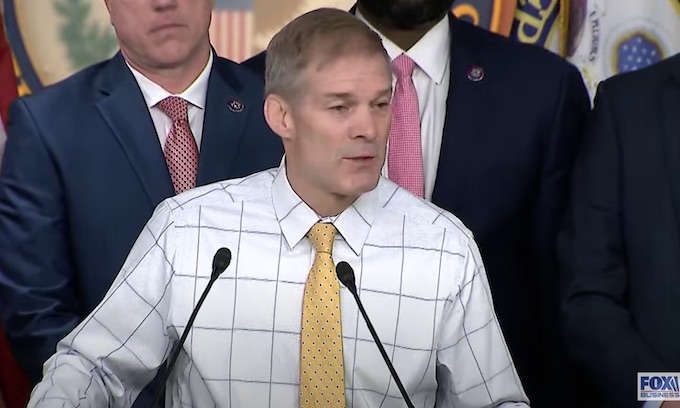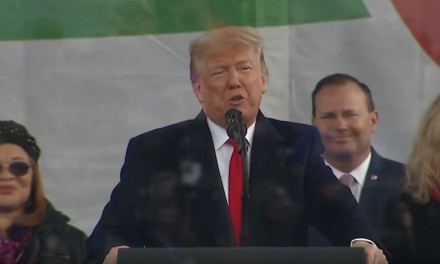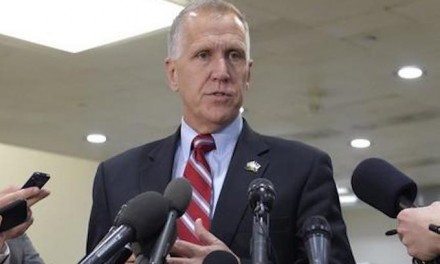A fractured Republican conference will meet Oct. 11 to select their candidate for speaker of the House, even as many members remain angry over the ouster of former speaker Kevin McCarthy (R-Calif.) barely a week ago.
The 221 Republican representatives will also vote on potential structural changes to their conference, which threaten to deepen the divisions between them.
Until a speaker is elected, the House is unable to enact legislation. That means providing additional support for Israel in its war against Hamas is on hold.
Despite these mounting pressures, a number of GOP members are confident their members will quickly unify behind a new speaker and return to governing.
House members began returning to Washington on Oct. 9 after nearly a week in recess. That evening, about 150 Republicans met for an unofficial discussion of the speaker’s race.
The two candidates—Majority Leader Steve Scalise (R-La.) and Judiciary Committee Chairman Jim Jordan (R-Ohio)—did not address the group, attendees later told reporters.
Instead, various members aired their views, which included expressions of anger with eight of their number who, joined by 208 Democrats, voted to oust Mr. McCarthy.
“There was anger, but that’s just what you’re going to expect,” Rep. Tim Burchett (R-Tenn.) told reporters after the meeting.
Mr. Burchett, who is among those who voted to vacate the speaker’s chair, downplayed the intensity of emotion in the room.
“It was just venting,” he said. “It wasn’t overly offensive. I wasn’t uncomfortable.”
Tensions in the room were “moderate,” according to Rep. Max Miller (R-Ohio).
“They’re not as high, probably, as the American people would expect,” he said.
“We’re working through the issues, and we’re trying to find a palatable candidate that can help lead the Republican Party.”
Seeking a Unified Path
Despite the tension, others saw the meeting as productive in helping Republicans find a unified path.
“Members had an opportunity to really go home, come back, and process their thoughts a little bit, said Rep. Byron Donalds (R-Fla.).
“I think it was much more about ‘Where do we go from here?’ That was very constructive.”
Forty-five Republicans sent a letter to their colleagues on Oct. 6, denouncing the faction that opposed Mr. McCarthy and declaring that the “injustice we all witnessed cannot go unaddressed.”
The opposing faction was angered that the former speaker allegedly broke agreements he had made with them, and said they did not believe he would work diligently to reduce federal spending.
Supporters of Mr. McCarthy believed he had done an excellent job leading the razor-thin GOP majority and had produced significant wins for conservatives.
Some are seeking rule changes to head off further disruptions.
Proposed Rules Changes
Prior to their Oct. 11 vote on a speaker nominee, Republicans will decide on suggested rule changes occasioned by both the ousting of Mr. McCarthy and his election in January.
That election, which played out over four days and 15 ballots on the House floor, showcased the divisions within the Republican conference.
One proposed change would alter a rule that enables a lone member of the House to initiate a vote to vacate the chair, the mechanism that was used to unseat Mr. McCarthy.
Although Republicans agreed to that rule in January, many now say it too easily allows a small faction to plunge the House into chaos. They have called for “fundamental changes to the structure of our majority” to prevent a recurrence of that event.
Others see this as an important check on the vast power of the House speaker. Most representatives oppose consolidating more power in that office, according to Mr. Donalds, and would oppose any move in that direction.
Mr. Burchett favors the rule but believes it need not be a divisive issue.
“That’s not a beach I’m going to die on,” he said. “If they want to [change] it, they can do it. [But] that’s the rule we agreed to, and they voted for.”
A second proposed change would require a GOP candidate for speaker to obtain 217 votes within the Republican conference before being placed in nomination to the full House of Representatives.
If adopted, the GOP majority would conduct the speaker’s election behind closed doors, making the vote on the House floor a formality akin to counting electoral college ballots.
“The American people are pretty weary right now of chaos,” Rep. Kevin Hern (R-Okla.) told reporters on Oct. 9.
“I don’t know that it’s healthy for the American people to see the chaos in the Middle East, chaos in Israel, and then chaos here.”
Holding the vote in private would keep intra-party wrangling from public view, which would be best for the country, according to Mr. Hern.
“The American psyche needs stability,” he said. “Having cameras so the rest of the world sees it [would be] a little destructive right now.”
Mr. Donalds favors such a plan, saying it would benefit whoever becomes the next speaker.
“I think our members want to see consensus,” Mr. Donalds said. “I think that consensus, especially where we are right now, actually empowers the person who’s going to become the next speaker, to go and do the work on behalf of the entire House of Representatives.”
Israel Aid on Hold
The Oct. 7 surprise attack on Israel by Hamas raises the urgency to elect a speaker because many members are eager to support Israel symbolically and financially.
Both candidates for speaker have voiced their intention to aid Israel.
House Foreign Affairs Committee Chairman Michael McCaul (R-Texas) and Ranking Member Gregory W. Meeks (D-N.Y.) on Oct. 10 introduced a bipartisan resolution reaffirming America’s commitment to Israel, supported by 390 House members. Legislation was introduced to provide $2 billion to replenish Israel’s Iron Dome missile defense system.
Those initiatives cannot be enacted without an elected speaker.
Even so, some members warn against rushing the choice.
“Members do understand the urgency,” Mr. Donalds said, speaking of the crisis in Israel.
“The fortunate thing is that the White House does have funds for these types of catastrophic events … The House will be ready to answer the bell if necessary.”
President Joe Biden is already taking action to support Israel, according to Mr. Miller. He urges his colleagues to take an additional week to thoroughly consider all possible candidates for speaker.
“We have to make sure we have a body that can operate to the best of America’s ability, and that’s what I am trying to achieve,” he said.
“While being just one of two Jewish [Republicans] in Congress, I care about what’s going on in Israel … but right now, we have a crisis on our hands that we also need to get through.”
Mr. Burchett said, “We’ll have a speaker by Wednesday. And honestly, what is Congress’s role in the Middle East?”
The United States already provides Israel with $3 billion in aid each year, he said.
Republicans will hold a speaker candidate forum on Oct. 10. They will reconvene Oct. 11 at 8:30 a.m. for a classified briefing on the war in Israel, then vote on rule changes at 10:00 a.m. followed by a vote on their speaker nominee, said Mr. Hern.



















IMO it was an IMMATURE/infantile move to remove McCarthy for doing the business of the people with Democrats and thereby making the government work LESS EFFECTIVELY!! That said, it is time to MOVE ON and do the business of the people with whomever it takes to get the job done. [as Donald Trump has endorsed Jim Jordan I think the best choice would be Steve Scalise.]
I much would have rathered Jordan. BUT NOW they’ve settled on Scalise, they ALL NEED TO coaless behind him.